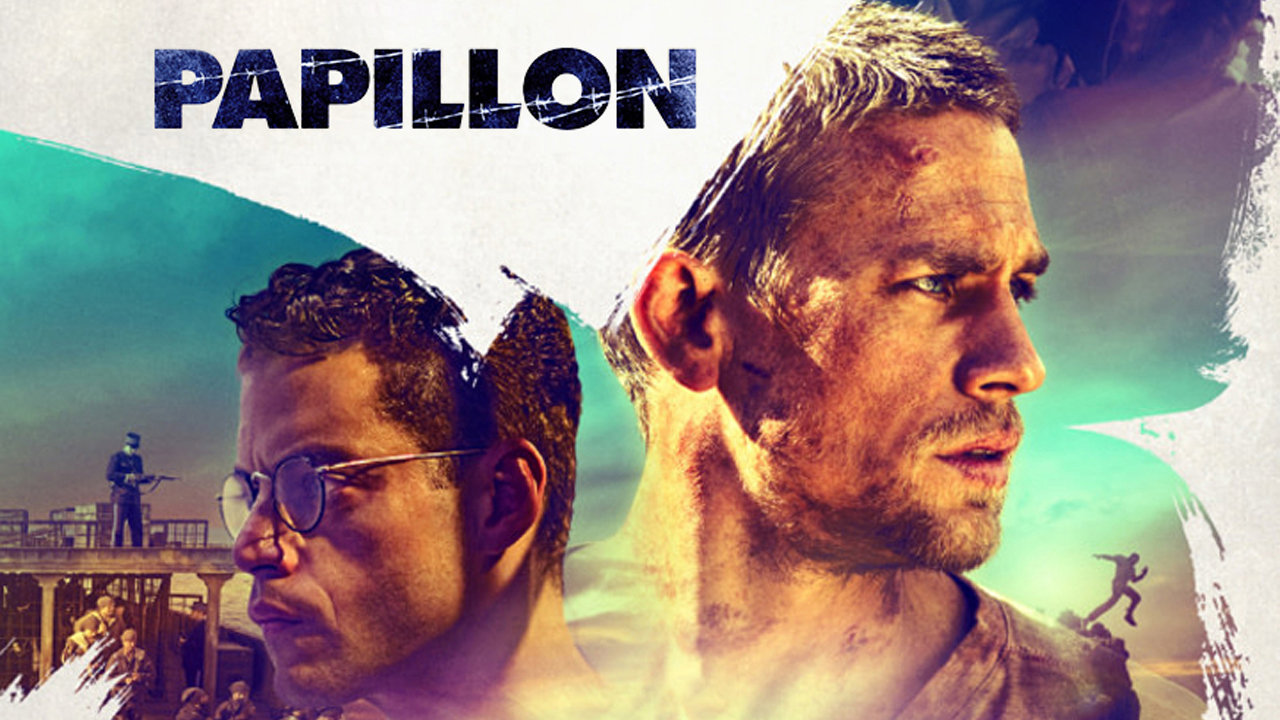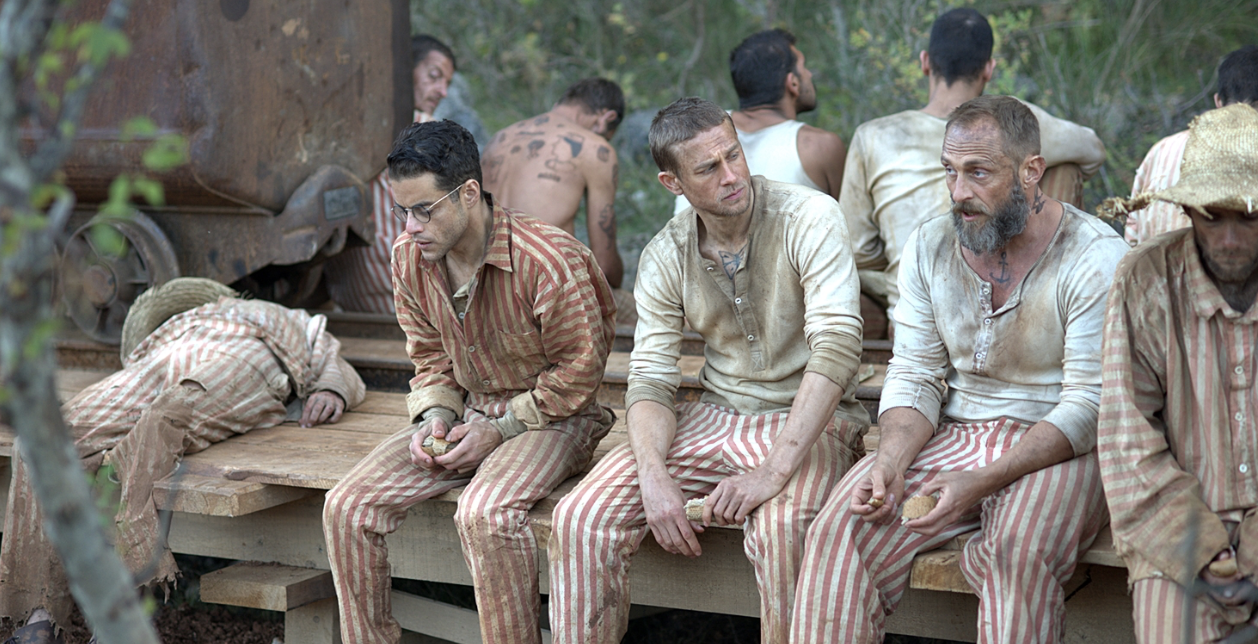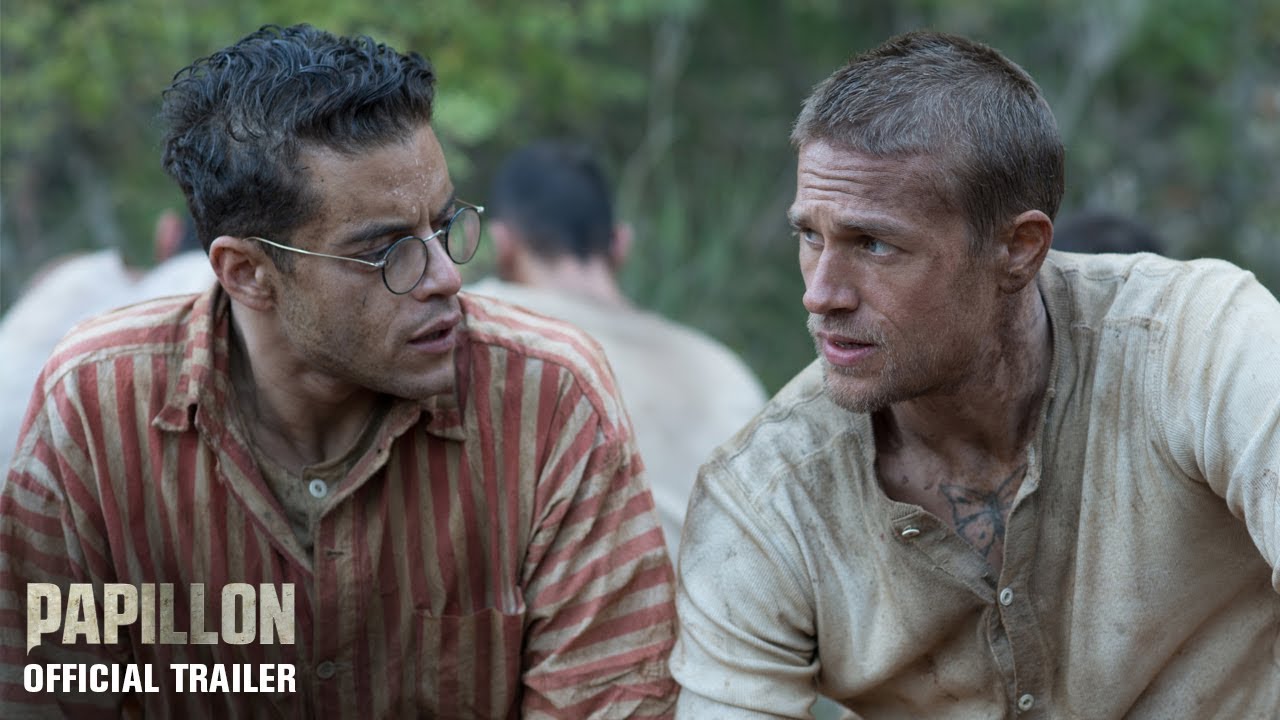𝙋𝙖𝙥𝙞𝙡𝙡𝙤𝙣 (𝟮𝟬𝟭𝟳)

Papillon (2017) is a compelling biographical drama directed by Michael Noer, based on the true story of Henri Charrière, a Frenchman wrongly convicted of murder and sent to the notorious Devil’s Island penal colony. The film stars Charlie Hunnam as Henri Charrière, or “Papillon,” and Rami Malek as Louis Dega, a fellow prisoner and confidant. The film explores the themes of survival, friendship, and the unyielding human spirit in the face of extreme adversity. It is a powerful story about perseverance, resilience, and the relentless pursuit of freedom.
At the heart of Papillon is the intense and profound friendship between the two main characters, Henri Charrière and Louis Dega. Henri, a man unjustly imprisoned, and Louis, a skilled forger who has been sentenced to Devil’s Island, form a strong bond during their time in captivity. Their relationship serves as a cornerstone of the film, as the two men rely on each other for survival amidst the harsh conditions of the penal colony. Rami Malek’s portrayal of Dega brings warmth and vulnerability to the film, while Charlie Hunnam’s portrayal of Charrière captures the unyielding will and determination of a man fighting for his freedom.
The film’s depiction of the brutal conditions at the French penal colony of Devil’s Island is both harrowing and realistic. The prisoners endure inhumane treatment, constant abuse from guards, and the constant threat of death. The island itself is portrayed as a desolate, oppressive environment that isolates the men from the rest of society, both physically and emotionally. As Henri and Louis face these brutal conditions, the film illustrates how their bond helps them maintain their humanity in the face of unrelenting adversity. Their escape attempts symbolize their desire for freedom and justice, despite the overwhelming odds against them.
Papillon also delves into the psychological toll of prolonged imprisonment. While the film showcases the physical brutality of the penal system, it also highlights the mental and emotional challenges faced by the prisoners. Henri’s unwavering desire for freedom becomes a means of survival, while Louis’ emotional vulnerability contrasts with Henri’s more hardened persona. This juxtaposition of personalities deepens the emotional resonance of the story, as each man brings something crucial to their friendship. The film effectively conveys the emotional and psychological struggles of the men, making their bond even more meaningful.

In terms of cinematography, Papillon is visually striking, capturing both the natural beauty of the island and the overwhelming despair of its inhabitants. The cinematography emphasizes the stark contrast between the lush, yet dangerous landscape of the island, and the grim, suffocating reality of life in the prison. The use of muted tones and sparse, desolate landscapes accentuates the feeling of hopelessness and confinement that pervades the prisoners’ lives. These visuals, combined with the poignant score, immerse the audience in the harrowing experience of imprisonment and the desire for freedom.

In conclusion, Papillon (2017) is a powerful film about the strength of the human spirit and the bonds of friendship forged under the most extreme conditions. Directed by Michael Noer, the film successfully captures the essence of Henri Charrière’s true story and the resilience of the prisoners on Devil’s Island. Through its strong performances, particularly by Charlie Hunnam and Rami Malek, and its harrowing depiction of the physical and psychological toll of imprisonment, Papillon stands as a poignant reminder of the human capacity for survival and hope, even in the face of unimaginable suffering. It is a timeless story about the pursuit of freedom, the strength of human connection, and the unbreakable will to overcome.











